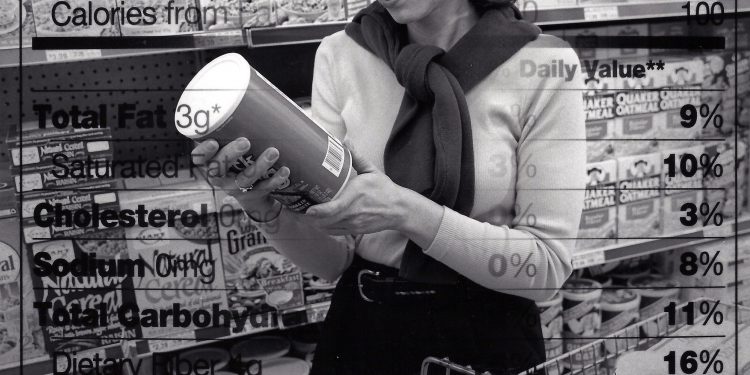Discrete choice experiments have found consumers prefer UK and EU produced food and will pay more for it.
Consumers were willing to pay more, in particular, to avoid food produced using methods currently banned in the UK and Europe, namely:
- Hormone implants in beef
- Ractopamine in pig feed
- Chlorine washed chicken
- Atrazine pesticide used in corn production
Called, Do Consumers Really Care? An Economic Analysis of Consumer Attitudes Towards Food Produced Using Prohibited Production Method, it was conducted by University of Kent’s School of Economics, the University of Reading and IHS Markit. The study was designed to measure consumer preferences that could be impacted, ahead of future trade deals.
It says, “our estimates suggest that consumers would be willing to pay substantial amounts to avoid consuming food produced using methods currently sanctioned in the US.”
The results show that, in each case, currently banned production methods earned significantly low “willingness to pay” estimates. The report said it was clear that consumers have strong preferences for high animal welfare standards.
Negative “willingness to pay” estimates for production methods currently banned were nearly 60% for pork, 36% for beef and 26% for chicken.
The inherent problem raised by the findings is that as things stand, UK consumers will not have the right to food labelling that helps them choose, once the Brexit transition period ends this year.
Existing World Trade Organization rules, which the UK would revert to in a no-deal scenario, do not allow labels indicating methods of production or processes under the consumers’ right to know. And there are no commitments to country of origin labelling either.
The report said, “If consumers express a strong dislike of specific production methods, it is unclear how they can make an informed choice at the point of purchase.”
More respondents thought the EU exit would have a negative effect on food
Blockchain technology and SmartLabels initiatives could provide information on source, method of production and supply chain, even for processed food. But this would have to be made mandatory in a trade deal as importers would not willingly adopt this level of transparency. Mandatory labelling is restricted by the World Trade Organization.
In total, 1,600 survey responses were collected evenly split across gender and age. Household size had a mode of two and almost 60% of respondents lived in a household with children. Mean household incomes ranged from £26,000 up to £31,199, which is consistent with the UK population.
More respondents thought the EU exit would have a negative effect on food (36%) than a positive effect (24%). Around 40% thought the effect would be neutral or did not know. Four out of five respondents said the quality of food could be judged by price.
The report explains that whole chickens are rinsed in countries such as America to kill microorganisms on the surface of the bird, specifically bacteria like Salmonella and Campylobacter.
Chicken treated this way has been excluded from the EU market since 1997. The European Food Safety Authority (EFSA) does not view chlorine in this context as unsafe. Its farm‐to‐fork approach reduces meat‐borne bacteria at all points along the supply chain, meeting food safety requirements and delivering higher animal welfare. Chlorine washing reduces the overall cost of production because less effort is made to control bacteria in the supply chain.
The use of additional hormones in beef production is common in countries such as the US and Australia. In beef production the hormone is implanted and released into the animal over time. Hormones allow the animal to grow bigger more rapidly while consuming less feed, which reduces the costs of production.
The European Commission banned hormones in animal production on safety grounds still in operation, as there remains uncertainty about the types of hormones being used and doses that can be considered safe.
Pork producers in the US are allowed to use Ractopamine as a feed additive to increase the rate of animal growth. Ractopamine increases protein synthesis, making the animal more muscular, reducing the fat content of the meat and increasing the return per animal.
Ractopamine is not authorised in the EU because there is insufficient evidence to declare it safe. Also because it has a detrimental impact on animal welfare. The EU’s position on Ractopamine has recently been followed by Thailand, which has banned pork imports grown using this additive.
Nor does the EU permit the pesticide Atrazine, a common herbicide in the US on maize and sweetcorn, in combination with other chemicals.
Herbicides are applied to 97% of corn planted land in America, with Atrazine accounting for 60% of active ingredients. The EU is concerned with its off‐site environmental impact, specifically the contamination of groundwater. As with all chemicals, small (and safe) residue levels are tolerated in food – for example, 0.05 mg/kg.























